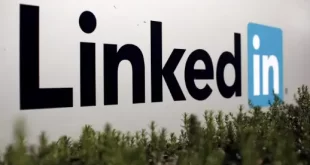Microsoft today announced the availability of Microsoft Azure services via local datacenter regions in India. As the first public cloud provider from India, Microsoft has opened three new regions – Central India in Pune, South India in Chennai, and West India in Mumbai. Governments, large businesses, small and medium businesses (SMBs) and citizens can use the massive computing power now available locally to fuel India’s inclusive growth, spur innovation and accelerate digital transformation.
In the words of Bhaskar Pramanik, Chairman, Microsoft India, “The Microsoft cloud in India will transform the way computing is done in the country. The hyper-scale cloud will empower governments, businesses and users and offer enough computing power that will support all their existing workloads. We are happy to partner with Government and businesses to make the Microsoft cloud work for India and for Indians.”
Built on foundational principles of security, privacy & control, compliance and transparency, Microsoft cloud services are designed to enable individuals and organizations to achieve more.
In addition to the Microsoft Azure services launching today, Office 365 services are slated for availability in October 2015, with Dynamics CRM Online services to follow in the first half of 2016.
Millions of users in India are already using Microsoft cloud services leading to the cloud business growing by more than 100 percent year on year over the past two years. With the local cloud services, regulated industries such as BFSI, government departments and state-owned enterprises will now be able to leverage public cloud services and be able to take advantage of local data residency. In addition, businesses that deal with large amounts of data e.g. media companies, will benefit from data replication in multiple regions within India for backup and recovery, reduced network distance, lower latency, and the option of a private connection to the cloud.
Microsoft local cloud services are well-suited for governments and businesses that already have significant investments in owned IT infrastructure. They will now be able to extend their existing IT infrastructure and private clouds to Microsoft local (public) cloud, thereby creating compelling hybrid cloud scenarios and reducing their cost of IT operations significantly. The impact on citizens is expected to be all the more significant as it will accelerate e-governance and roll-out of citizen services at unprecedented scale and speed by governments, thereby accelerating the governments’ Digital India and Smart Cities programs.
Newer and transformational scenarios of computing will also be possible. With the assurance of local data residency, programs like digital lockers and digital identity will also move quickly and enable better citizen services.
In addition,
- Startups and SMBs will gain a competitive advantage with enterprise-grade technology to help them innovate and grow their business to a global scale.
- Education Sector will witness transformational digital learning. Just one offering, Microsoft Edu-Cloud, is expected to benefit 10 lakh teachers and 60 lakh students across 1500 institutes over the next 18 months from local Microsoft Cloud.
- Developers, IT Professionals, ISVs and Partner ecosystem will see newer opportunities and innovative business models. From providing cloud assessment to cloud roadmap creation; from writing new cloud ready applications to migrating existing workloads to cloud; locally delivered cloud services will help hosters, ISVs and partners scale their business using the cloud.
Building the Intelligent Cloud
As one of the largest cloud operators in the world, Microsoft has invested more than $15 billion in building a resilient cloud infrastructure and cloud services that deliver higher availability and security, while lowering overall costs. Microsoft cloud infrastructure currently includes more than 100 datacenters located in over 40 countries, and the company is continuing to rapidly build capacity to serve customers worldwide.
“Enterprise-grade performance, flexibility and hybrid capability, openness and trustworthiness are differentiating factors of the Microsoft cloud. In addition, comprehensive higher-level business services enable new business possibilities for customers,” said Tyler Bryson, General Manager, Marketing and Operations, Microsoft India.
The Microsoft Cloud, including Azure and Office 365, supports compliance with a broad set of industry-specific laws and meets broad international standards. Azure and Office 365 have received ISO 27001 certification, are audited under the SSAE 16 SOC 1 and SOC 2 standard, offer a HIPAA business associate agreement, and have received authorization to operate under FedRAMP. Microsoft was also the first to adopt the uniform international code of practice for cloud privacy, ISO/IEC 27018, which governs the processing of personal information by cloud service providers.
Microsoft is continuing to bring advanced cloud services such as Machine Leaning (ML), Advanced Analytics, Media Services, Internet of Things (IoT), Express Route and more, to organizations at the click of a button. This will help businesses to extend existing investments to digital business scenarios, create new efficiencies and new revenue sources and enable innovation. All this will now be possible by better harnessing of data, connecting people, streamlining processes and utilizing assets for digital transformation. Thyssen Krupp is already using this for predictive maintenance of its elevators. Several automobile companies are leveraging this technology for developing smart cars. Government of Andhra Pradesh has adopted this predictive analytics technology to identify probable drop-outs from school and with the success it has had, the scope of the project has now been extended to more than 10,000 schools across 13 districts.
Further, Microsoft’s commitment to openness and collaboration have enabled new scenarios for customers and partners to take open source software and integrate it with a Microsoft platform. The open and flexible nature of Microsoft cloud allows customers to host a range of operating systems, use any data base or development platform and deliver services to end users using any PC or any mobile device. Today, more than 20 percent of virtual machines on Azure are Linux and VM Depot has more than 1,000 Linux images. Azure also provides first-class support for Java, Node.js, Python, Ruby, and PHP, and Microsoft Azure is certified to host SAP environments.
Said, V S Shridhar, Sr. Vice President, Global Enterprise Business, Tata Communications,”Prime Minister Narendra Modi’s meeting with Satya Nadella put a spotlight on the huge economic and social opportunities that the latest technological innovations hold for India. We’re excited to be working with Microsoft, harnessing our superfast network to connect local businesses to Azure cloud services. At Tata Communications, we have always been committed to empowering business globally and in India to enable transformation through the cloud and capitalize upon growth opportunities that the digital economy offers. Our partnership with Microsoft will help us enhance this effort and help further the Digital India mandate.”
 Latest Technology News Today – Get Latest Information Technology Updates and Services Latest Technology News Today – Get Latest Information Technology Updates and Services
Latest Technology News Today – Get Latest Information Technology Updates and Services Latest Technology News Today – Get Latest Information Technology Updates and Services 









